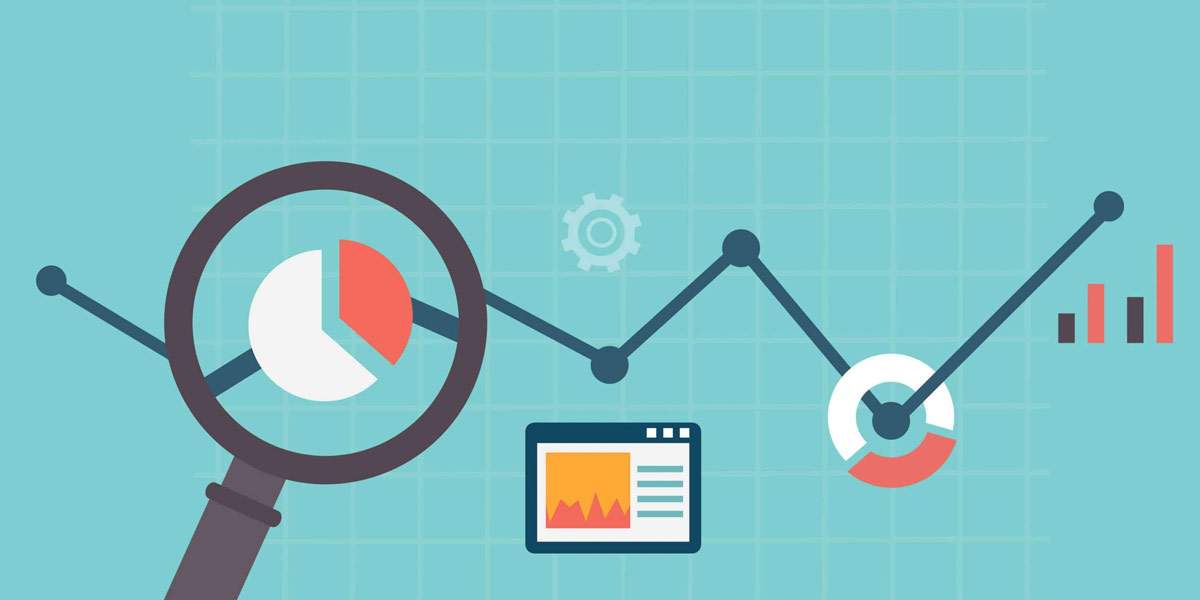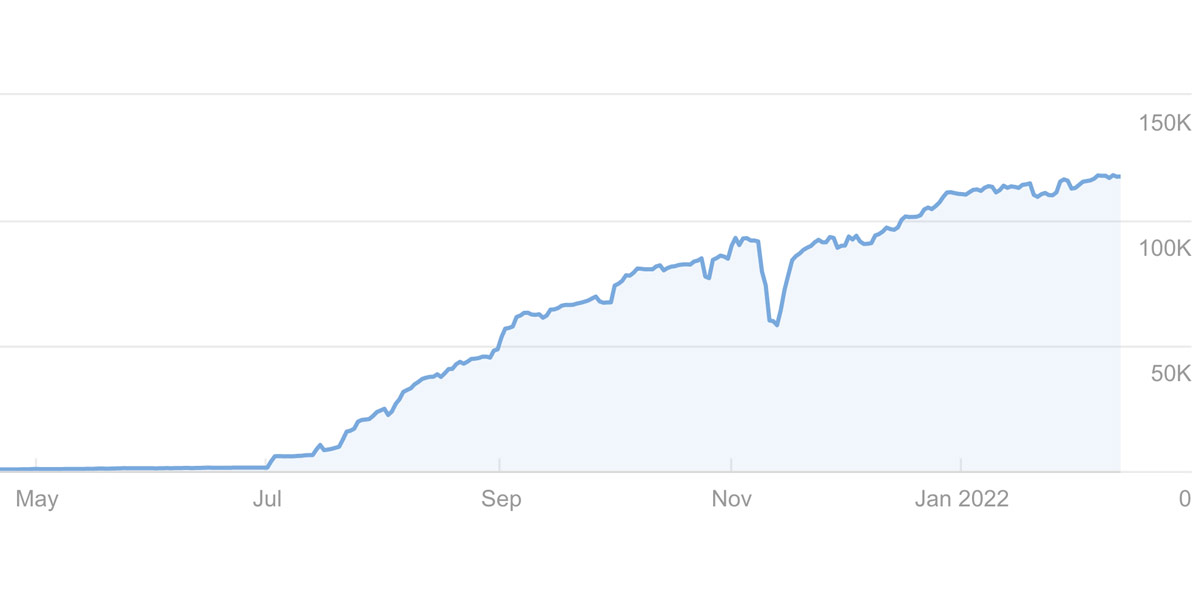What is Organic Traffic?

As a website owner, you’ve probably heard the term “organic traffic” thrown around in discussions about search engine optimization (SEO). But what exactly is organic traffic, and why is it so important for your website’s success? In this article, we’ll explore the ins and outs of organic traffic and share strategies for maximizing your search engine visibility to attract quality visitors.
In the world of SEO, organic traffic refers to the visitors who come to your website through unpaid search results. Unlike paid traffic, which comes from ads that you pay for, organic traffic is free, making it an attractive option for website owners who want to increase their visibility and attract quality visitors.
But while organic traffic is an essential part of any successful SEO strategy, achieving it can be challenging. With millions of websites vying for the top spots on search engine results pages (SERPs), how can you ensure that your website stands out? In this article, we’ll explore the ins and outs of organic traffic and share strategies for maximizing your search engine visibility to attract quality visitors.

Organic Traffic
What is Organic Traffic?
Defining Organic Traffic
Organic traffic refers to the visitors who come to your website through unpaid search results. When someone types a search query into a search engine like Google, the search engine uses an algorithm to determine which websites are most relevant to that query. The websites that are deemed most relevant are then listed in order of their relevance on the SERP.
How Organic Traffic Differs from Other Types of Traffic
Several types of traffic can come to your website, including:
- Direct traffic: Visitors who come to your website by typing your URL directly into their browser
- Referral traffic: Visitors who come to your website by clicking a link on another website
- Paid traffic: Visitors who come to your website through ads that you pay for
While all of these types of traffic can be valuable, organic traffic is often considered the most valuable because it is free and generally considered to be of higher quality. Because organic traffic comes from search engine results, it tends to be more targeted and relevant to the user’s search query.
The Importance of Organic Traffic for SEO
Organic traffic is an essential part of any successful SEO strategy because it is an indicator of how well your website is performing in search engine results. When your website appears on the first page of search engine results, it is more likely to be seen by users who are actively searching for the products or services you offer. This increased visibility can lead to more traffic, more leads, and more sales.

What is Organic Traffic?
Understanding Search Engine Algorithms
How Search Engines Work
To understand how to maximize organic traffic, it’s important to have a basic understanding of how search engines work. When a user types a search query into a search engine, the search engine’s algorithm analyzes the query and then searches its index for pages that match the query. The algorithm then ranks those pages in order of relevance to the query.
The specific details of how search engines work are closely guarded secrets, but we do know that they use a combination of on-page and off-page factors to determine which pages are most relevant to a given query.
Search Engine Algorithms and Ranking Factors
Search engine algorithms are complex and constantly evolving, but several key factors are known to play a role in determining a page’s search engine ranking. These include:
- Keywords: Search engines analyze the content of a page to determine which keywords it is relevant for. By optimizing your content around the keywords that are most relevant to your business, you can increase your chances of ranking well for those keywords.
- Backlinks: Backlinks are links from other websites to your website. Search engines see backlinks as a signal that other websites consider your content to be valuable and authoritative. By building high-quality backlinks, you can improve your website’s authority and increase your search engine visibility.
- User experience: Search engines want to provide their users with the best possible experience, so they take into account factors like page load speed, mobile-friendliness, and ease of navigation when ranking pages.
- Content quality: High-quality, informative content that provides value to users is more likely to rank well than low-quality, thin content that doesn’t provide much value.

Understanding Search Engine Algorithms
Strategies for Maximizing Organic Traffic
Now that we’ve covered the basics of organic traffic and search engine algorithms, let’s dive into some specific strategies you can use to maximize your organic traffic.
Keyword Research and Optimization
Keyword research is the process of identifying the keywords and phrases that your target audience is searching for, and then optimizing your content around those keywords. By using the right keywords in your content, you can increase your chances of ranking well for those keywords in search engine results.
To conduct keyword research, start by brainstorming a list of keywords and phrases that are relevant to your business. You can then use keyword research tools like Google Keyword Planner, SEMrush, or Ahrefs to identify additional keywords and determine their search volume and competition level.
Once you have a list of target keywords, you can start optimizing your content around those keywords. This includes incorporating the keywords into your page titles, meta descriptions, headers, and content.
On-Page Optimization
On-page optimization refers to the process of optimizing the content and structure of your website to make it more search engine-friendly. Some key on-page optimization techniques include:
- Creating high-quality, informative content that provides value to users
- Using descriptive, keyword-rich page titles and meta descriptions
- Using header tags (H1, H2, H3, etc.) to organize your content and make it easier for search engines to understand
- Optimizing your images by using descriptive file names and alt text
- Using internal linking to help search engines understand the structure of your website and the relationships between pages
Link Building
Link building is the process of acquiring backlinks from other websites to your own. Backlinks are an important ranking factor in search engine algorithms because they signal to search engines that other websites consider your content to be valuable and authoritative.
There are many different strategies you can use to build backlinks, including:
- Guest posting on other websites
- Creating high-quality, shareable content that other websites will want to link to
- Reaching out to other websites and asking them to link to your content
- Participating in online forums and communities and including links to your website in your posts
Content Creation
Creating high-quality, informative content is one of the most important things you can do to maximize your organic traffic. By providing valuable information and answering the questions that your target audience is asking, you can establish yourself as an authority in your industry and build trust with your potential customers.
Some key tips for creating high-quality content include:
- Conducting thorough research to ensure that your content is accurate and up-to-date
- Focusing on topics that are relevant to your target audience
- Providing clear, concise answers to the questions that your target audience is asking
- Using a variety of media formats, including text, images, videos, and infographics, to make your content more engaging and shareable
- Using descriptive, keyword-rich titles and meta descriptions to help your content rank well in search engine results
Technical SEO
Technical SEO refers to the process of optimizing the technical aspects of your website to make it more search engine-friendly. Some key technical SEO techniques include:
- Ensuring that your website is mobile-friendly and responsive
- Improving your website’s page load speed
- Using schema markup to help search engines understand the content of your website
- Ensuring that your website has a clear and easy-to-understand site structure
- Submitting a sitemap to search engines to help them crawl and index your website
Local SEO
If you have a local business, local SEO can be an effective way to drive more organic traffic to your website. Some key local SEO techniques include:
- Creating a Google My Business listing and optimizing it with accurate and up-to-date information
- Getting listed in local business directories and review sites
- Using location-specific keywords in your content and metadata
- Building backlinks from local websites and blogs

Strategies for Maximizing Organic Traffic
Measuring and Analyzing Organic Traffic
One of the key benefits of organic traffic is that it’s relatively easy to measure and analyze. By tracking your website’s organic traffic data, you can gain valuable insights into how your website is performing in search engine results pages (SERPs) and identify areas for improvement.
Tools for Measuring Organic Traffic
Some of the most popular tools for measuring organic traffic include:
- Google Analytics: This free web analytics tool from Google provides a wide range of data on your website’s organic traffic, including the number of sessions, pageviews, bounce rate, and more.
- SEMrush: SEMrush is a paid SEO tool that provides a range of data on your website’s organic traffic, including organic search traffic, keyword rankings, backlinks, and more.
- Ahrefs: Ahrefs is another paid SEO tool that provides data on your website’s organic traffic, including organic search traffic, keyword rankings, backlinks, and more.
Analyzing Your Organic Traffic Data
When analyzing your organic traffic data, some key metrics to look at include:
- Sessions: The number of times that users visited your website during a given period.
- Pageviews: The number of pages that users viewed on your website during a given period.
- Bounce Rate: The percentage of users who left your website after viewing only one page.
- Average Time on Page: The average amount of time that users spent on each page of your website.
By analyzing these metrics and comparing them to your website’s overall goals, you can identify areas for improvement and develop strategies to improve your website’s search engine visibility.

Measuring and Analyzing Organic Traffic
Common Myths About Organic Traffic
There are many myths and misconceptions surrounding organic traffic and SEO. Here are a few of the most common:
Myth #1: SEO is Dead
Despite what some people may say, SEO is not dead. While the algorithms used by search engines are constantly evolving, the fundamentals of SEO remain the same: create high-quality content, use descriptive titles and meta descriptions, build high-quality backlinks, and optimize your website for search engines.
Myth #2: You Can Buy Organic Traffic
While there are many services out there that claim to sell “organic traffic,” the reality is that you cannot buy organic traffic. Organic traffic comes from search engine results pages (SERPs) and is the result of high-quality content, effective SEO strategies, and a well-designed website.
Myth #3: SEO is a One-Time Task
SEO is not a one-time task. To maintain and improve your website’s search engine visibility, you need to continually optimize your content, build high-quality backlinks, and stay up-to-date with the latest trends and best practices in SEO.
Myth #4: Quantity is More Important Than Quality
While it’s important to create a lot of high-quality content to improve your website’s search engine visibility, quantity is not more important than quality. Search engines value high-quality content over low-quality content, so it’s important to focus on creating content that provides value to your target audience and answers their questions.

Common Myths About Organic Traffic
Conclusion
Organic traffic is a crucial component of any effective SEO strategy. By optimizing your website for search engines, creating high-quality content, building backlinks, and leveraging local SEO techniques, you can drive more organic traffic to your website and establish yourself as an authority in your industry.
Remember, SEO is a long-term strategy that requires patience, persistence, and ongoing effort. By continually optimizing your website and content, you can continue to improve your search engine visibility and drive more organic traffic over time.
FAQs
What is organic traffic?
Organic traffic refers to the visitors who come to your website through search engines like Google, Bing, or Yahoo. These visitors find your website by clicking on the search results page that appears when they type in a relevant keyword or phrase. Organic traffic is free, and it is not influenced by paid advertising or other promotional activities.
What is the difference between organic traffic and paid traffic?
The main difference between organic traffic and paid traffic is that organic traffic is free, while paid traffic involves paying for clicks, impressions, or other types of advertising. Organic traffic is generated through search engine optimization (SEO), which involves optimizing your website for search engines so that it appears higher in the search results. Paid traffic, on the other hand, involves paying for advertising space on search engines or other websites.
How do I increase organic traffic to my website?
To increase organic traffic to your website, you need to focus on improving your website’s search engine optimization (SEO). This involves optimizing your website’s content and structure so that it is more appealing to search engines like Google. Some ways to improve your SEO include targeting relevant keywords, creating high-quality content, building backlinks to your website, and improving your website’s loading speed.
Why is organic traffic important?
Organic traffic is important because it is a key indicator of the health and success of your website. It indicates that your website is being found by people who are looking for the products, services, or information you offer. Organic traffic is also valuable because it is free, which means that you don’t have to pay for each visitor who comes to your website.
How can I monitor my website’s organic traffic?
You can monitor your website’s organic traffic by using a web analytics tool like Google Analytics. This tool allows you to track the number of visitors to your website, where they are coming from, and how they are interacting with your website. You can also set up goals and conversion tracking to measure the effectiveness of your website in terms of generating leads, sales, or other types of conversions.
What are some examples of organic traffic sources?
Some examples of organic traffic sources include search engines like Google, Bing, or Yahoo, social media platforms like Facebook or Twitter, online directories like Yelp or Yellow Pages, and other websites that link to your website. Organic traffic sources are those that are not influenced by paid advertising or other promotional activities.
How can I improve my website’s SEO for organic traffic?
To improve your website’s SEO for organic traffic, you need to focus on creating high-quality content that is relevant and useful to your target audience. You should also optimize your website’s structure and navigation so that it is easy for search engines to crawl and index your pages. Other ways to improve your website’s SEO include targeting relevant keywords, building high-quality backlinks, and improving your website’s loading speed.
Is organic traffic a key performance indicator (KPI)?
Yes, organic traffic is a key performance indicator (KPI) because it measures the number of visitors who come to your website through search engines. Organic traffic is a valuable KPI because it indicates how well your website is performing in terms of generating traffic and attracting potential customers.
What are the benefits of organic traffic?
The benefits of organic traffic include lower marketing costs, higher conversion rates, better engagement with your target audience, and more sustainable long-term growth. Organic traffic is also more valuable than paid traffic because it is free and not influenced by advertising or other promotional activities.

